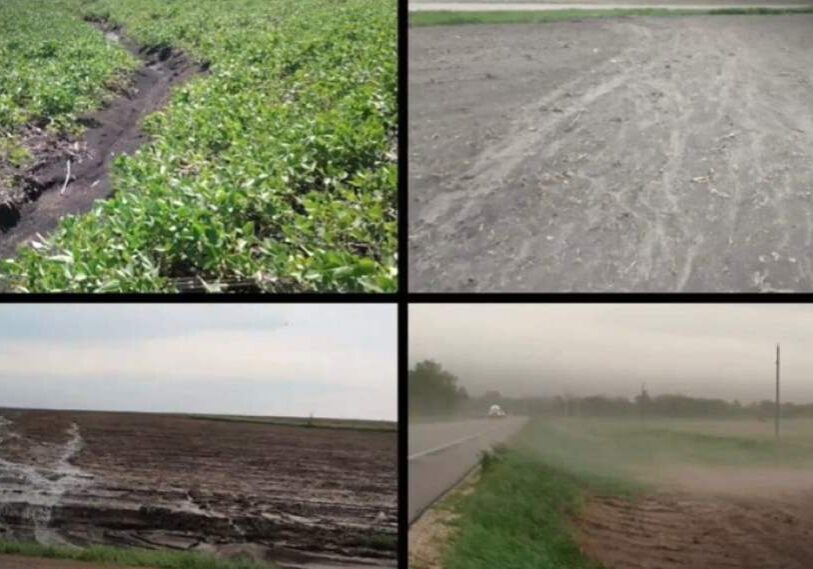Manure Digester Proposed in Lewiston

LEWISTON — Commercial manure digesters are a fairly new way of handling farm waste in Minnesota, with rural communities taking notice.
Traditionally, individual farms have stored their livestock waste until it is spread on their fields as fertilizer. New proposals are now arising from corporations to build new facilities to collect large quantities of manure from farms and process it with anaerobic digestion in which microorganisms break down the biodegradable manure in the absence of oxygen. Digesters simultaneously produce fertilizer and biogas, a form of renewable energy.
Time will tell whether introducing a large manure digester operation will be a benefit for a community. Nonetheless, several projects are being proposed for multiple locations in Minnesota and Wisconsin – two such inquiries are in the vicinity of the drainage divide between the Mississippi River-Winona and Root River watersheds in southeast Minnesota.

The city of Lewiston is situated between the Mississippi and Root River watersheds. (Map: Minnesota DNR)
One proposal was recently made in Wilson Township, south of Winona, Minnesota, by a company called Nature Energy. The project was moving along rapidly until the site layout showed a potential sinkhole problem.
Meanwhile the mayor and city council of nearby Lewiston, also in Winona County, have recently given the go-ahead to begin looking for appropriate sites for a Nature Energy manure digester there. Other Nature Energy sites include Benson, in west central Minnesota, a project that is moving forward, and Roberts, Wisconsin (just across from St. Paul), where the project was turned down.
The size of Nature Energy’s manure digester would definitely change the look, feel and economy of a town. The facility needs at least 25 acres of land and includes over 20 structures and an exhaust stack 197 feet tall and eight 82-foot digesters. It would be a busy place with 90-100 trucks coming and going daily, according to Nature Energy. The facility would have its own well tapping into the aquifer and use about 12 million gallons of water per year in its operations.
Lewiston leadership is feeling positive about the facility. “We’re looking into it,” said Mayor Beth Carlson. “There are certain things the Minnesota Pollution Control Agency is going to ask us to do. We have to pick some land and there would be soil borings to make sure [the manure digester] would be supported there. That would be the first stopping point. There would also be traffic studies done.”
The mayor supports the project. “Lewiston is a very rural city and many businesses already cater to local farmers. Places like Lewiston Feed and Produce and Benson’s Lane Dairy don’t just help farmers, they bring people to town where they buy gas at Kwik Trip or stop at the Rec (Recreation Bar and Café).
The mayor said, “Because this business would be within Lewiston city limits it would help our tax base. It could also help our school district. There’s declining enrollment in Winona County and that affects the funds they can get from the state. I look at it as bringing industry into our town and helping our tax base and therefore helping our residents. That’s a big industry for us.” The mayor has received a letter of support from some of the local farmers.

This is an image of a Nature Energy manure digester plant. (Graphic: Nature Energy)
Concerns
But concerns have been raised in various communities that have considered a manure digester project, including the economics of the plan, the impact of high truck traffic volume, and excessive water usage:
- Nature Energy started in Denmark and has a reputation of being a good corporate citizen, but it was recently purchased by Shell Oil for $2 billion. How will the multi-national company prioritize profits or the welfare of their host community? What taxpayer dollars will go to subsidizing this project and how much will actually go to farmers?
- Large trucks hauling manure on rural gravel roads can cause severe wear and tear that will require maintenance by townships and small rural cities. Will the taxes paid by Nature Energy cover road repairs?
- Manure digesters use a lot of water as do large livestock operations that may grow around it. Will the added pressure on aquifers cause wells to dry up?
- This is a huge project that will require enormous inputs of manure. It is a benefit to large feedlots but of little use to small and medium-size farms that use manure on their fields. Does the commitment to the project encourage large operations that will push out and replace smaller operations? How does this change the population, economy, and character of a community?
- The digester converts manure to “digestate” which can be used as a fertilizer, and biogas, which can be used like natural gas. Who owns the digestate the facility produces? Will the biogas be sold to the highest bidder leaving all the benefits of its production in the hands of Shell Oil?
- Right now, manure digesters are being heavily subsidized by the government. What happens to the profitability of the project if government dollars dry up?
- Will the net gain of 12-16 jobs being touted be realized? Will the jobs provide a living wage and good working conditions? How many jobs will last beyond the start-up phase?
- There are currently six large-scale commercial digesters in Minnesota. What has their experience been?
Communities like Lewiston will be looking to answer these questions as the public process moves forward. They will need to weigh the potential economic development of a project of this size against the externalities that the project might create for small and medium sized farms, rural residents and the environment.








